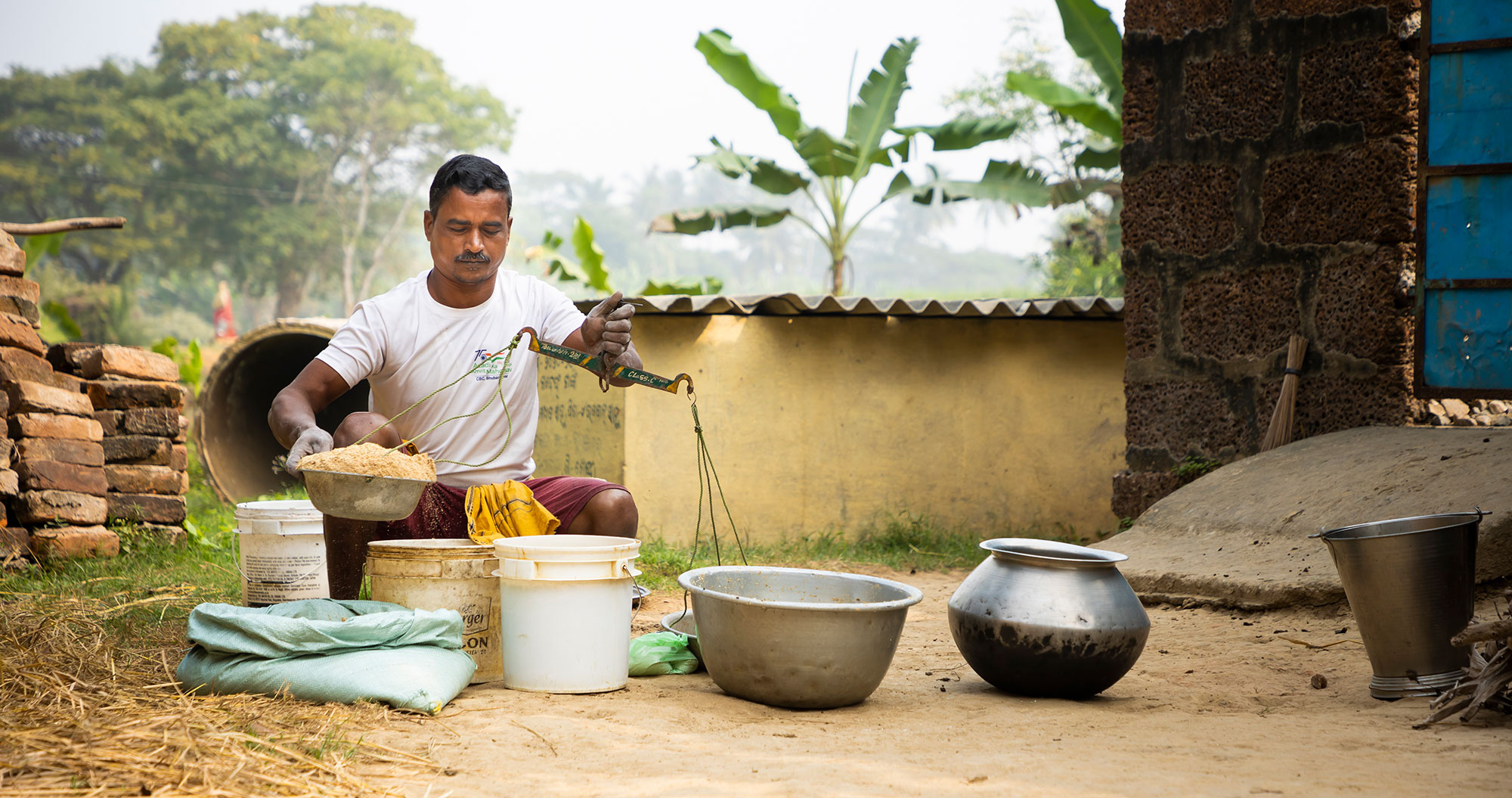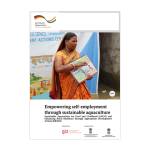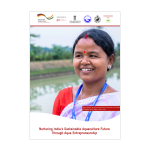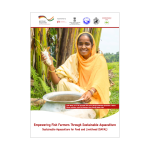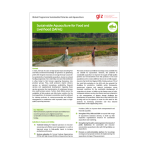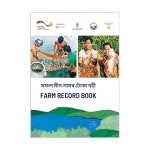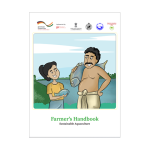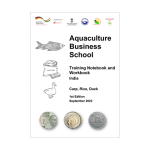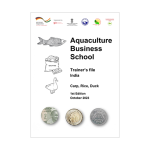Sustainable Aquaculture for Food and Livelihood (SAFAL)
Food Security through Integrated Aquaculture (EIAA)
OBJECTIVES
The project objective is that “the food-insecure population in Assam and Odisha has more fish products and a higher income from sustainable and re-source-efficient aquaculture in pond management.”
The outputs to achieve under the objective are:
- “More Fish – More Work” aims at increasing production and aquaculture-based employment.
- “Sustainable Fish” aims to encourage fish farmers to practice sustainable pond management and be better organized.
DESCRIPTION
On behalf of the German Federal Ministry for Economic Cooperation and Development (BMZ), the Deutsche Gesellschaft für Internationale Zusammenarbeit (GIZ) GmbH implements the Indo-German Development Cooperation Project “Food Security through Integrated Aquaculture” (EIAA) in cooperation with the Ministry of Fisheries, Animal Husbandry and Dairying (MoFAHD), Government of India. EIAA is part of the Global Programme on Sustainable Fisheries and Aquaculture (GP Fish) under the Special Initiative “Transformation of Agricultural and Food Systems” by BMZ. The project is locally known as “Sustainable Aquaculture for Food and Livelihood”, hereafter referred to as SAFAL.
The project aims to increase the production of fish from sustainable aquaculture along with the associated increase in income and demand for labour. The political and institutional framework conditions for the implementation of sustainable and resource-saving aquaculture shall be improved while complementing various Indian government schemes, especially the Pradhan Mantri Matsya Sampada Yojana (PMMSY).
The project with its activities promotes the availability and access to fish as a nutrient-rich food, contributing to Sustainable Development Goal (SDG) 2 (Zero Hunger) as well as to SDG 1 (No Poverty) through productivity enhancement activities, improved business skills and promotion of income generating activities for small-scale fish producers, Farmer Producer Organisations (FPOs), multipliers and policymakers.
VIDEO
APPROACH/FIELD OF INTERVENTION
Knowledge adoption and sustainable tools through dynamic resource kiosk on Sustainable Aquaculture, co-created Knowledge Products (KP; Farmers Handbook, Trainers Manual, Didactics), Information, Education, Communication (IEC) materials, digital tools, 2D animated videos, board games and Farm Record book.
Financial sustainability and FPO business model through capacity building of farmer institutions, initiatives for development of sustainable business models of FPOs/other co-operatives and enhancing service delivery and extension services through Community Resource Persons (CRPs).
Aquaculture entrepreneurship promotion through creation of training and handholding platform, convergence with government and financial institutions to enhance production and creation of new jobs in the fish value chain thereby contributing to total protein production.
Development of Community Resource Persons acting as self-financed extension service workers along with trainers for sustainable aquaculture, who are also stakeholders of farmer institution and owners of seed bank as an empowered driving force.
State-level Multi-Stakeholder Platform development by facilitating a network initiative for stakeholders mapping, formation of Secretariat to explore challenges and finding tested solution in aquaculture sector. This platform can also function as an advisory role in the State Department to support state policy-level decisions.
The Participatory Guarantee System (PGS) serves as an innovative drive to incorporate freshwater aquaculture in PGS India guidelines through PGS (natural farming) model development among 500 women fish farmers in Assam.
Development of decision-making tools supporting block wise pond mapping, land use pattern, pond area estimation, and estimated conversion of agricultural land to pond will help fish farmers to make informed decision to improve their current aquaculture practices.
Business decision making empowering individuals and communities in business decision making through Aquaculture Business School in collaboration with Department of Fisheries, Assam and Assam State Rural Livelihood Mission for improved income and livelihood through tri-partite MoU.
Cost optimisation support through awareness and training on the use of natural feed and EM (effective micro-organism for maintaining availability of planktons) for enhanced production of fish without increasing input cost.
TARGETED BENEFICIARIES
Aquaculture fish farmer (including members of FPOs, Self-Help Groups and others.), Actors in the Aquaculture Value Chain in Assam and Odisha, India.
FIND MORE INFORMATION ABOUT SAFAL PROJECT
HIGHLIGHT ACTIVITIES
- Co-creation of KPs and IEC material.
- Creation and distribution of Farm Record Book.
- Capacity building for sustainable aquaculture stakeholder and regional government officials.
- Roll-out of Community Resource Person knowledge multiplication concept.
- Inclusion of sustainable aquaculture into Assam State Policy Framework.
- Launch of Aquaculture Business School.
- Development of Participatory Guarantee System (PGS) (natural) freshwater pond aquaculture.
- Study on fermentation of feed using Effective Microorganism.
- Capacity building of Farmer Institutions.
- Initiation of Multi-Stakeholder Platform.
- Promotion of a Gender Transformation approach.
- Integration of Decentralised Renewable Energy solutions in Sustainable Aquaculture practices.
- Development of Aqua Entrepreneurship model.
- Publication of SAFAL KPs and IEC material on AGRICULTURAL SKILL COUNCIL of India I ASCI
PUBLICATIONS
KNOWLEDGE PRODUCTS AND IEC MATERIAL
Poster:
Pamphlets
- Fish Diseases
- Do’s & Don’ts in Sustainable Aquaculture
- Pond Construction
- Hatchery
- Pond Environment
- Feed Management
- Hatchery Operations
- Dos Donts Hatchery
- Hatchery Economics
Flipbooks
- Species wise Identification of Fish Seed
- Environment Effects
- Transportation of Seed
- Quality Brood Stock
SUCCESS STORIES
Pioneering the path towards sustainable aquaculture
Name: Kalyani Deka
Women empowerment through inclusive training on sustainable aquaculture in Darrang District, Assam
A resident and member of Nabajyoti SHG in Daha village of Darrang District, Assam, Kalyani Deka is involved in various livelihood activities and currently is a role model for many. Like many others in her village, Kalyani too constructed a farm pond for fishing under MGNREGA in 2021. However, she was unable to utilise it with the limited traditional knowledge she had along with her family members. She was looking for opportunities to improve her pond farming practices when she came to know about various trainings on sustainable aquaculture under the Indo-German development cooperation project ‘Sustainable Aquaculture for Food and Livelihood (SAFAL)’ implemented by Deutsche Gesellschaft für Internationale Zusammenarbeit (GIZ) GmbH.
After receiving training on sustainable aquaculture as FCRP (Fish Community Resource Person) under SAFAL project, Kalyani renovated her farm pond, lime, manure and added fish fingerlings as per the standard norms of sustainable aquaculture. Soon, she was able to start the entrepreneurship model of selling fingerlings among her cluster members, while training 24 women farmers on sustainable aquaculture practices.
Kalyani is continuously motivating other farmers to adopt aquaculture as a means of livelihood and says “This is just the beginning and we believe that with time, the farmers will become more confident and technically sound towards sustainable aquaculture.”
Strengthening himself and his community through science.
Name: Rajiba Nanada Gohain
Training in Biswanath Chariali district is bringing the sustainable aquaculture practice among traditional fish farmers
Rajiba Nanada Gohain has been involved in fish farming but could practice it partially because of insufficient knowledge on the subject. He wanted to improve the condition of his pond and boost his revenue stream by means of reasonable fish production. Through his Farmer Producer Organisation (FPO) in Biswanath Chariali district, he came to know about the fishery training programme under the Indo-German development cooperation project ‘Sustainable Aquaculture for Food and Livelihood’ (SAFAL) implemented by Deutsche Gesellschaft für Internationale Zusammenarbeit (GIZ) GmbH in cooperation with the local NGO Kalong-Kapili.
Equipped with the scientific knowledge of pond management practices, Rajiba gained the confidence to put his learnings to use. He utilized the inputs from the training such as proper use of the Water Testing Kit Boxes along with the dos and don’ts of sustainable aquaculture practices. Soon, he formed a cluster of 15 members from his FPO to practice and disseminate what he learned as well as promote sustainable aquaculture. The switch to the use of good quality seeds helped the cluster members to improve the water quality of the ponds including the fish growth, without additional financial burden.
Rajiba says, “The training programme showed us the way to have a good grasp on aquaculture, which was much needed for the development of the community and would help them to bring more production leading to greater success in the near future”. He is hopeful to make a good profit soon due to enhanced and quality fish production.
Prosperity through sustainable aquaculture and training success.
Name: Mukunda Chetry
Training of CRP and training adoption brings considerable changes in output of the sustainable aquaculture business.
Mukunda Chetry is the sole provider for his family and engaged in various agricultural activities including fish farming in his 0.5 bigha area pond. In 2021, he participated the training program under the Indo-German development cooperation project ‘Sustainable Aquaculture for Food and Livelihood’ (SAFAL) implemented by GIZ India in cooperation with the local NGO, Kalong-Kapili through his Farmer Producer Organisation (FPO).
Mukunda used to release various types and quantities of fish seeds indiscriminately into the same pond along with leftover rice, urea and supplementary feeds. Despite feeding the fish 3-4 times daily, the growth was limited to 600-700 grams per year, with a total production of 50-60 kilograms. After completing the 18 days training, he immediately applied his newfound knowledge such as preparing natural feed and feeding twice daily using rice bran, mustard oil cake.
He also constructed an additional pond area of 0.5 bigha in April 2023, bringing his total fish farming area to 1 bigha. Mukunda happily shares that his current fish production surpasses that of the previous year. The fishes grown upto 1.5-2 kilograms avg. size and sold a total of 200-220 kilograms of fish to a local vendor, earning more than 50,000 rupees from a single stock.
Mr. Chetry says, “Fish Farming is less time-consuming compared to other crops, and it allows for higher profits at a lower cost if you know the know-how, which is possible through suitable training as an example- SAFAL GIZ training.” Today, he oversees 15 cluster members and plans to expand his fish culture ponds.
COUNTRY
India , Asia
DURATION
Apr 2021 - Oct 2024
Commission Agency
BMZ
SDG
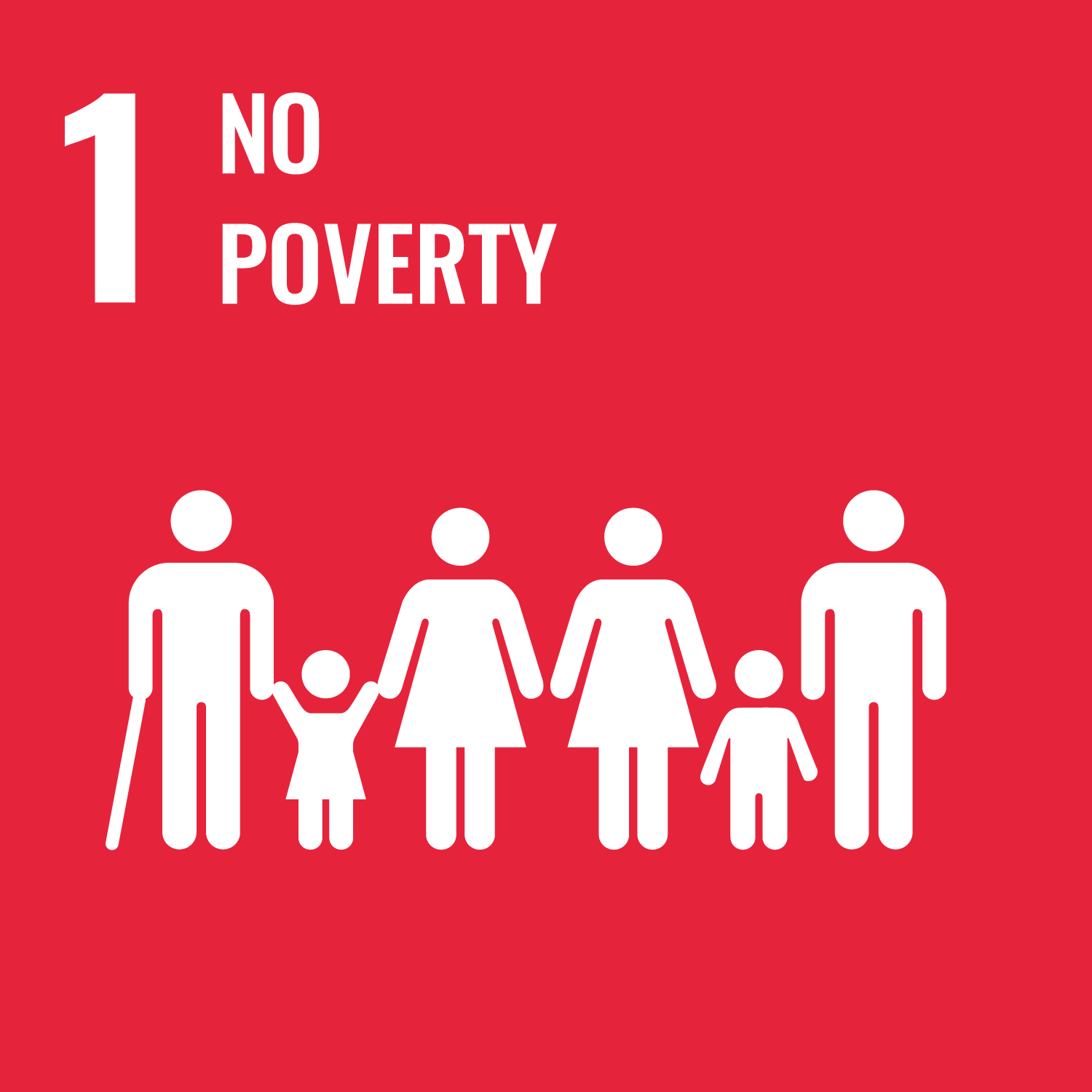
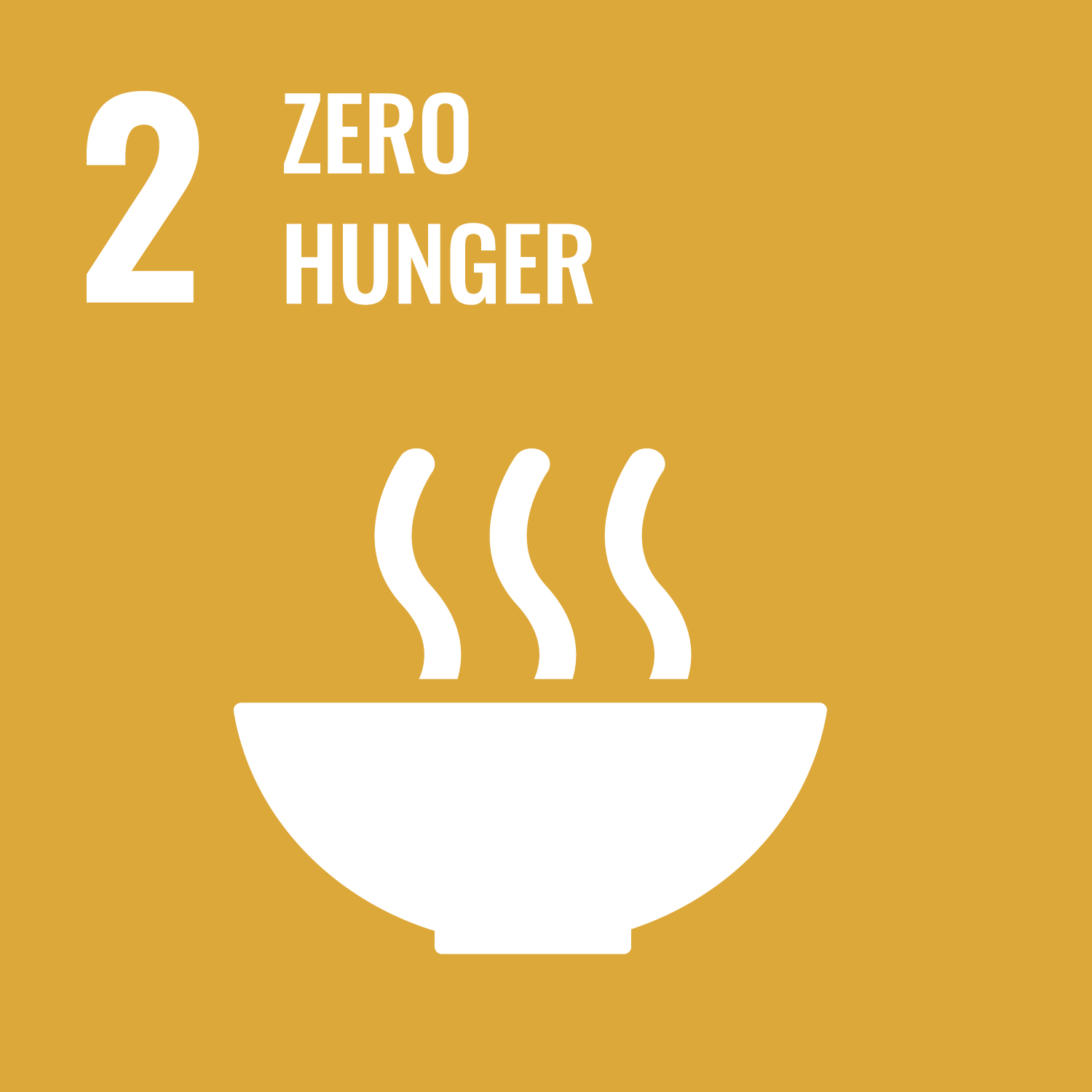
CONTACT PERSON
GLOBAL PROGRAMME
Global Programme Sustainable Fisheries and Aquaculture
More fish and income from sustainable fisheries and aquaculture – giz.de
NEWSLETTER
Follow up on our activities in the GP Fish newsletter.
GOVERNMENT PARTNER
Ministry of Fisheries, Animal Husbandry and Dairying (MoFAHD), Government of India (National Lead)
State Departments of Fisheries, Assam and Odisha




